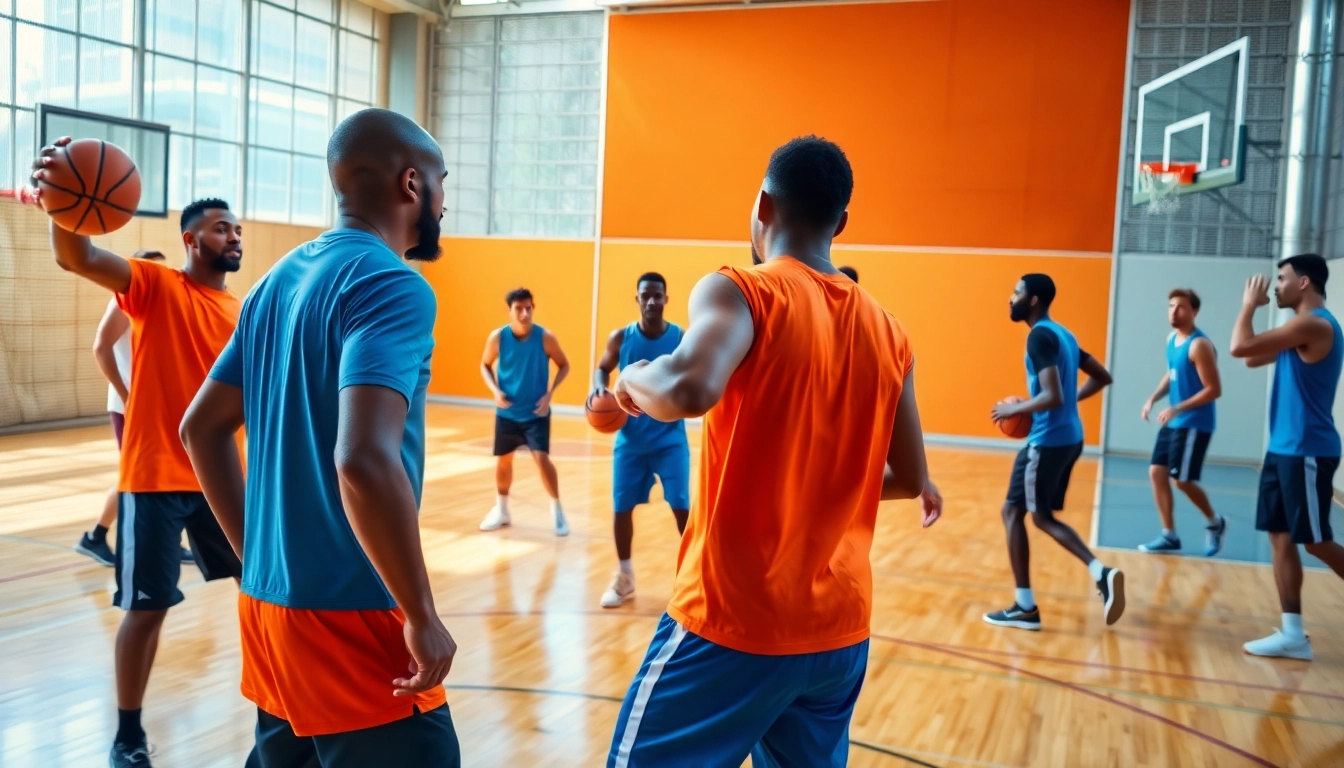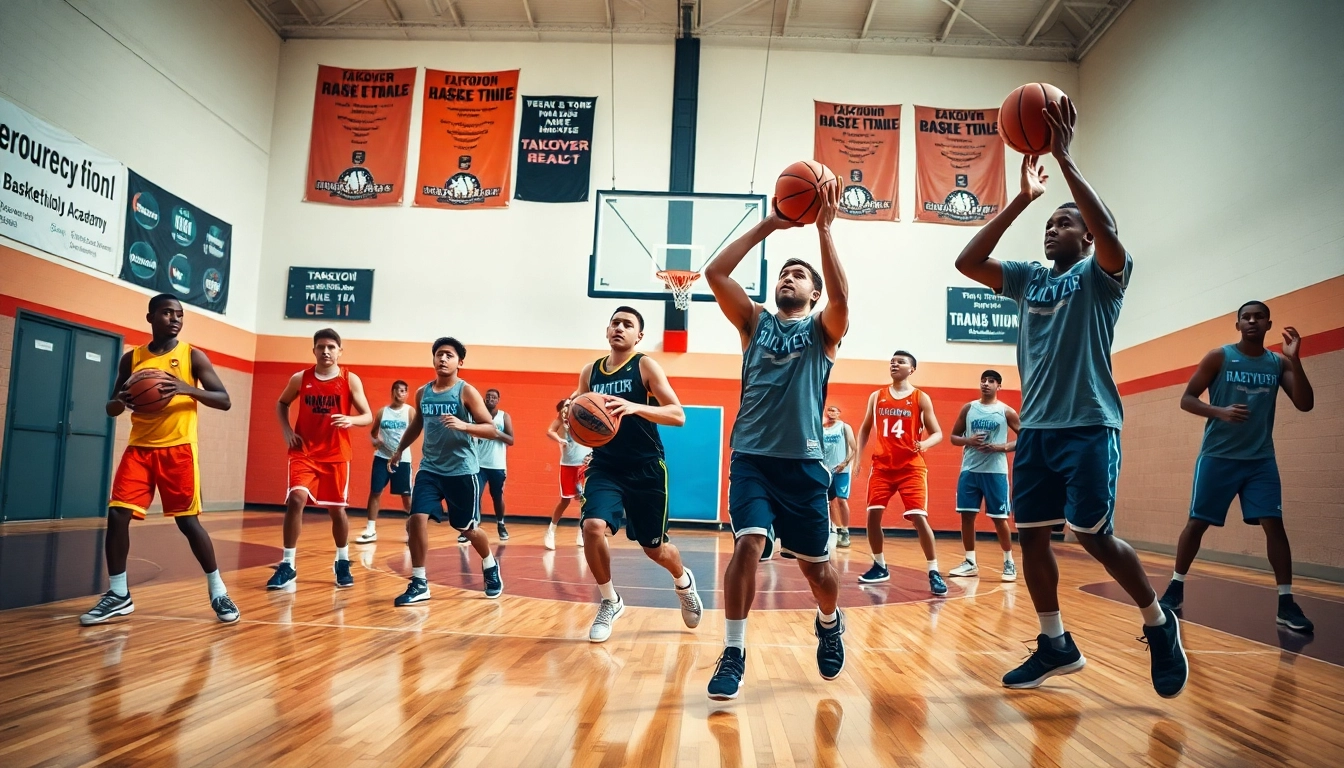Understanding the Best Basketball Training Programs
In the world of sports, training is crucial for success, particularly in a dynamic and competitive field like basketball. Players, regardless of their level, are always seeking programs to enhance their skills, build strength, and develop strategies. This quest leads many to search for the best basketball training programs available today. But what exactly makes a training program effective? What should aspiring players consider when selecting a program that aligns with their individual needs?
What Defines Effective Training Programs?
An effective basketball training program is one that not only improves a player’s technical skills but also enhances their overall physical conditioning and mental aptitude. It should address various aspects of the game, including shooting mechanics, ball handling, defensive strategies, and situational awareness. The most successful training programs incorporate varied drills, real-time feedback, and game scenarios to emulate the pressure of actual match play.
Key Components of Successful Basketball Training
Several key components define successful basketball training programs:
- Skill Assessment: Understanding each player’s unique skill level and potential is fundamental. Programs that start with comprehensive assessments can tailor their approach for optimal performance.
- Progressive Drills: Training should include a variety of drills that build in intensity and complexity over time, enabling players to gradually develop their skills.
- Feedback Mechanisms: Incorporating methods for receiving feedback, whether through video analysis or personal coaching, helps players correct faults in real time.
- Physical Conditioning: An emphasis on strength, agility, and endurance is crucial—often, the best programs integrate fitness training alongside basketball drills.
- Mental Conditioning: Psychological resilience is as important as physical prowess; the best programs incorporate techniques for developing mental toughness and focus.
Identifying Your Skill Level and Needs
Before enrolling in a training program, players should take a clear inventory of their abilities and areas for improvement. This includes determining not only their skill level—beginner, intermediate, or advanced—but also their specific goals. For example, are they looking to improve their shooting accuracy, defensive skills, or overall game IQ? Understanding personal objectives will assist players in selecting a program that best suits their needs.
Top-Rated Basketball Training Programs of 2023
The landscape of basketball training programs is evolving rapidly. In 2023, several training programs stand out for their effectiveness and comprehensive offerings. Here’s an overview of some of the top-rated options:
Overview of Elite Training Camps
Elite training camps, such as those run by IMG Academy and other prominent institutions, offer structured, intensive training for players serious about improving their game. These camps typically feature:
- Expert coaching from former professional players and experienced trainers.
- Comprehensive skill development programs that include both on-court training and off-court conditioning.
- Opportunities to compete against other athletes, thus simulating real-game situations.
For athletes invested in long-term improvement, such camps can provide crucial exposure and networking opportunities.
Private Coaching vs. Group Training
When considering training options, players often debate between individual private coaching and group training sessions. Both have their pros and cons:
- Private Coaching: Offers personalized feedback and tailored workout plans. Ideal for players seeking intensive, specific skill development.
- Group Training: Provides a competitive environment and often lower costs. Useful for developing teamwork and learning alongside peers.
Ultimately, the choice depends on the player’s learning style, budget, and goals.
Online Training Programs: Pros and Cons
The rise of digital technology has led to a surge in online basketball training programs. While these can provide flexibility and accessibility, they come with both advantages and disadvantages.
Pros:
- Accessible coaching from experts regardless of geographical limitations.
- Ability to learn at one’s own pace and revisit material as needed.
- Cost-effective—often less expensive than in-person training.
Cons:
- Lack of personalized feedback can hinder development.
- Limited real-time interaction and on-court adjustments.
- Requires self-discipline to stay motivated and focus on exercises.
How to Choose the Right Basketball Training Program
With so many options available, selecting the right basketball training program can be daunting. Here are some steps to help you make an informed decision:
Assessing Program Reviews and Success Stories
Researching program reviews and testimonials can provide insights into their effectiveness. Look for feedback from former participants regarding:
- Coaches’ competence and approachability.
- Program structure and how well it aligns with stated goals.
- Success stories of improvement and player development.
Questioning Coaches: What to Ask?
Once potential programs are shortlisted, engaging with coaches is vital. Here are key questions to consider:
- What is your coaching philosophy, and how do you approach player development?
- Can you provide examples of players who have successfully progressed through your program?
- What metrics do you use to track improvement?
Budget Considerations and Value for Money
Finally, it’s essential to evaluate costs in relation to value. Training programs vary significantly in price, and the most expensive program isn’t always the best fit. Determine your budget and consider:
- What’s included in the price—coaching sessions, materials, and additional resources?
- Are there discounts for long-term commitments or multiple packages?
- Does the program offer any guarantees for satisfaction or improvement?
Maximizing the Impact of Your Training
Enrolling in a training program is just the first step. To truly maximize the impact of your basketball training, consider the following complementary strategies:
Complementing Training with Fitness and Nutrition
Strength and conditioning are vital components of a successful basketball career. Athletes who complement their training with physical fitness activities—like strength training, agility drills, and flexibility exercises—often see better results. Moreover, a proper diet tailored to an athlete’s specific needs can enhance stamina, recovery, and overall performance. Consulting a nutritionist who specializes in sports can help in formulating a suitable diet plan.
The Role of Mental Conditioning in Basketball
The mental aspect of basketball is as critical as physical preparation. Implementing strategies such as visualization techniques, controlled breathing exercises, and mindfulness practices can help athletes build mental resilience and concentration. Many top players utilize sports psychologists to develop mental strategies that enhance performance under pressure.
Tracking Progress: Metrics to Monitor
Regularly tracking progress allows players to identify strengths and weaknesses effectively. Utilize various metrics, such as:
- Skill assessments on shooting percentages, assist-to-turnover ratios, and defensive effectiveness.
- Physical metrics including speed, vertical jump height, and endurance tests.
- Personal goals set at the beginning of training to evaluate ongoing progress.
Future Trends in Basketball Training Programs
The landscape of basketball training is continuously evolving, and several trends are gaining momentum. Here’s what to expect in the future:
Integration of Technology in Training
From virtual reality training to analytics software, technology is transforming how players learn and improve. Programs that incorporate data analytics can provide players with detailed insights into their performance, allowing for targeted improvements. Additionally, wearable technology enables tracking physiological metrics, ensuring players optimize their training regimens.
Growing Popularity of Virtual Coaching
The shift towards remote training models accelerated by the pandemic has made virtual coaching a viable alternative to traditional methods. Coaches can now conduct sessions via video call, providing flexibility and accessibility. This trend allows players to engage with high-quality coaching without geographical constraints.
Innovative Drills and Techniques on the Horizon
As the game of basketball evolves, so do the training techniques. We can expect to see more innovative drills designed to simulate game situations, improve decision-making skills, and enhance reactive abilities on the court. Programs that stay ahead of the curve will continually adapt their drills to include skills that reflect modern gameplay trends.



